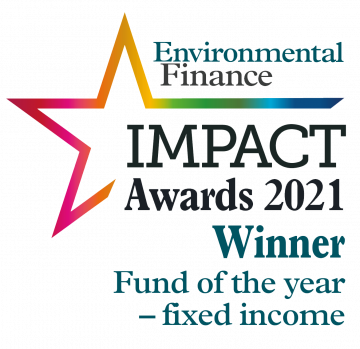An investment in the Domini Impact Bond Fund is not insured and is subject to certain risks, including impact investing, portfolio management, style risk, information, market, recent events, interest rate and credit risks. The Adviser’s evaluation of environmental and social factors in its investment selections and the timing of the Subadviser’s implementation of the Adviser’s investment selections will affect the Fund’s exposure to certain issuers, industries, sectors, regions, and countries and may impact the relative financial performance of the Fund depending on whether such investments are in or out of favor. The value of your investment may decrease if the Adviser’s or Subadviser’s judgement about Fund investments does not produce the desired results. There is a risk that information used by the Adviser to evaluate environmental and social factors, may not be readily available or complete, which could negatively impact the Adviser’s ability to evaluate such factors and Fund performance. The market value of Fund investments will fluctuate and you may lose money. The public health crises caused by the COVID-19 outbreak may exacerbate other pre-existing political, social and economic risks in certain countries or globally. The value of your investment will fluctuate with changes in interest rates and could decline if an issuer’s credit rating falls, it goes bankrupt or it fails to pay, or otherwise defaults on payments of interest or principal.
During periods of rising interest rates, bond funds can lose value. Some of the Fund’s community development investments may be unrated and may carry greater credit risks than the Fund’s other holdings. The Fund currently holds a large percentage of its portfolio in mortgage-backed securities. During periods of falling interest rates, mortgage-backed securities may prepay the principal due, which may lower the Fund’s return by causing it to reinvest at lower interest rates.
TBA (To Be Announced) securities involve the risk that the security the Fund buys will lose value prior to its delivery. There also is the risk that the security will not be issued or that the other party to the transaction will not meet its obligation, which can adversely affect the Fund’s results.
The Fund may hold a substantial portion of its assets in the direct obligations of U.S. government agencies and government-sponsored entities, including Fannie Mae and Freddie Mac, and in the mortgage-backed securities of Government National Mortgage Association (Ginnie Mae), Fannie Mae, and Freddie Mac. Although the U.S. government has provided financial support to Fannie Mae and Freddie Mac, there can be no assurance that it will support these or other government-sponsored enterprises in the future. Ginnie Maes are guaranteed by the full faith and credit of the U.S. Treasury as to the timely payment of principal and interest. Freddie Macs and Fannie Maes are backed by their respective issuer only, and are not guaranteed or insured by the U.S. government or the U.S. Treasury.
The reduction or withdrawal of historical financial market support activities by the U.S. Government and Federal Reserve, or other governments/central banks could negatively impact financial markets generally, and increase market, liquidity and interest rate risks which could adversely affect the Fund’s returns.
Investments in derivatives can be volatile. Potential risks include currency risk, leverage risk (the risk that small market movements may result in large changes in the value of an investment), liquidity risk, index risk, pricing risk, and counterparty risk (the risk that the counterparty may be unwilling or unable to honor its obligations).

